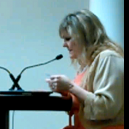-
Welcome to the real Jehovah's Witnesses Online Community!
Welcome to JWTalk! JWTalk.Net is the only online community for real, actual Jehovah's Witnesses - those who are active, loyal, publishers of God's Kingdom - where you can speak with brothers and sisters from all around the world on a wide variety of topics.
All Activity
-
Who's Online 28 Members, 0 Anonymous, 576 Guests (See full list)
About JWTalk.net - Jehovah's Witnesses Online Community
Since 2006, JWTalk has proved to be a well-moderated online community for real Jehovah's Witnesses on the web. However, our community is not an official website of Jehovah's Witnesses. It is not endorsed, sponsored, or maintained by any legal entity used by Jehovah's Witnesses. We are a pro-JW community maintained by brothers and sisters around the world. We expect all community members to be active publishers in their congregations, therefore, please do not apply for membership if you are not currently one of Jehovah's Witnesses.







.thumb.gif.503be83d9b641351930371e757a10eb4.gif)
















.png.bc1f5a7f4382305422c12eb5005e3ab8.png)
